Special Report
The Biggest Health Mistakes People Make in the Summer

Published:
Last Updated:

Summer is a time to go on vacation, enjoy the outdoors, and have fun at open air concerts. So taking care of one’s health may not be on the list of priorities — but it should. While your top priorities might include enjoying barbecue food, sweet cold beverages, and spending hours out in the sun, taking certain health precautions should also be atop that priority list throughout the whole summer.
“Temperature, humidity, and direct sun are the three most serious causes for most summer-related health problems,” according to Dr. Bonnie Simmons, emergency medicine doctor in Brooklyn, New York. They lead to dehydration and sunburn. This is why you should never do these 11 things when it’s hot outside.
The easy ways to avoid any issues is to drink a lot of water — this is appropriate for people of any age — and to not be in hot weather, which is most crucial for elderly people. As we age we don’t feel thirsty as often as a person’s sense of thirst becomes less acute with age, Simmons explained. So by the time you feel a need to drink some water, you may be way too dehydrated, and dehydration can be a dangerous condition.
Summer health hazards can lead to serious consequences if people don’t take the proper measures to avoid them. Some consequences are so common, and doctors see them repeat year after year. While some heat-related health issues can cause injuries that are quickly recoverable, others can cause long-term health damage.
Click here to read about the biggest health mistakes people make in the summer
To identify some of the most serious health mistakes people make in the summer, 24/7 Tempo consulted an urgent care doctor and reviewed several sources including the Centers for Disease Control and Prevention (CDC), National Health Institutes, National Fire Protection Association, and the Food and Drug Administration.
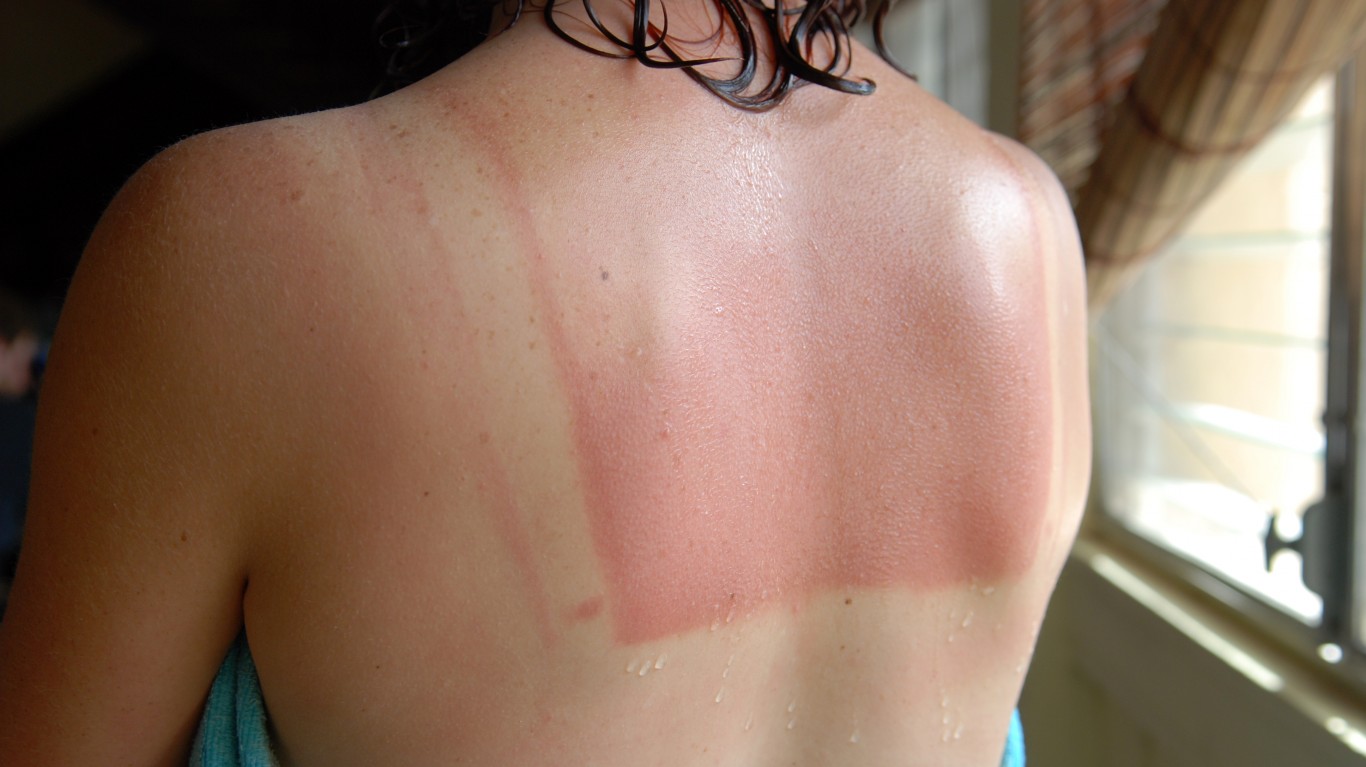
1. Taking a warm shower when you have sunburn
There are several things people can do to soothe a sunburn, but taking a warm shower is not one of them. You want to keep the sunburnt area clean and cool. Put ice wrapped in a thin towel on the area, or taking a cold shower to remove any salt residue that can make the burn worse can help, Dr. Simmons noted. Warm or hot water will only strip whatever remaining natural oils are left on the skin, dehydrating it further and worsening the existing burn.
[in-text-ad]
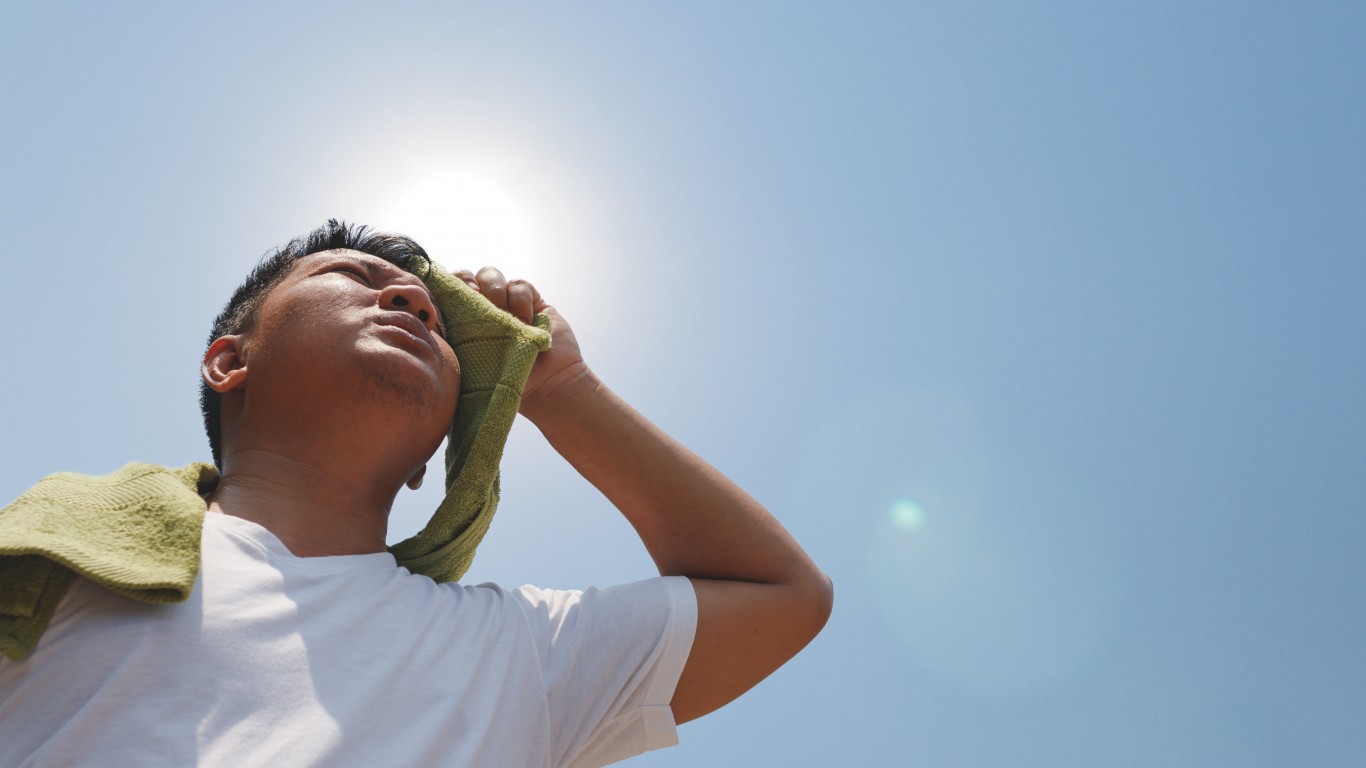
2. Ignoring heat stroke symptoms
Heat stroke is a very serious condition that requires immediate medical attention. “That’s 911, not urgent care or simply hiding inside,” Dr. Simmons said. In a heat stroke, the body is overheating, reaching a core temperature of 104 F or higher and is not able to cool itself down. Major symptoms include lack of sweat, headache, dizziness, confusion, cramps, nausea, rapid heartbeat, and fainting.
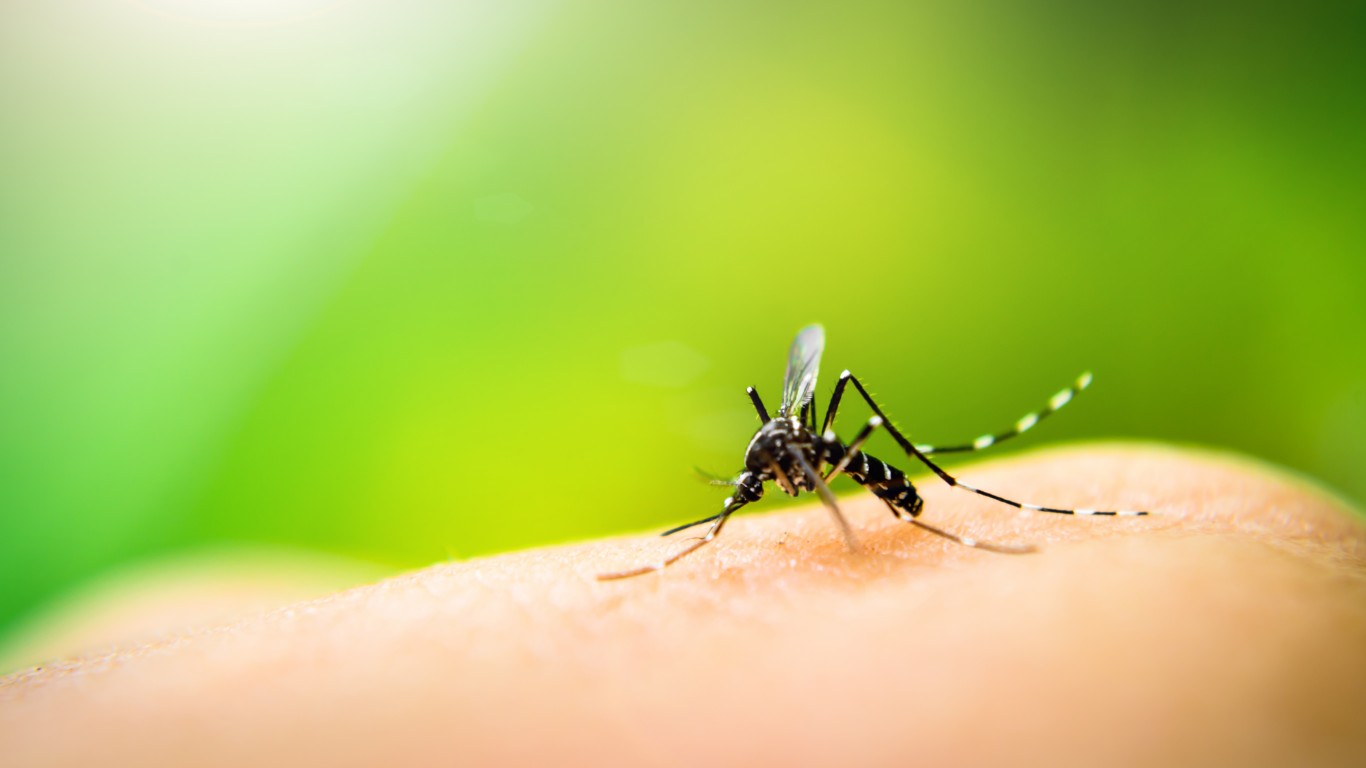
3. Not taking bug bites seriously
For most people, bug bites are nothing but a nuisance. The affected area gets red and it might hurt or itch, but nothing more. If you are allergic to bees and wasps, however, or live in an area where ticks are common — and that depends on the type of tick — you need to know how to cover up, Dr. Simmons noted.
The prevalence of Lyme disease depends on several factors, and some areas are much more prone to it than others. The CDC offers a map of incidence rates, and states often have their own, more specific information about the incidence. Some ticks that are found in wooded or grassy areas carry other diseases such as tularemia or Rocky Mountain spotted fever. Mosquitoes can also carry viruses. They include West Nile virus, malaria, and dengue.
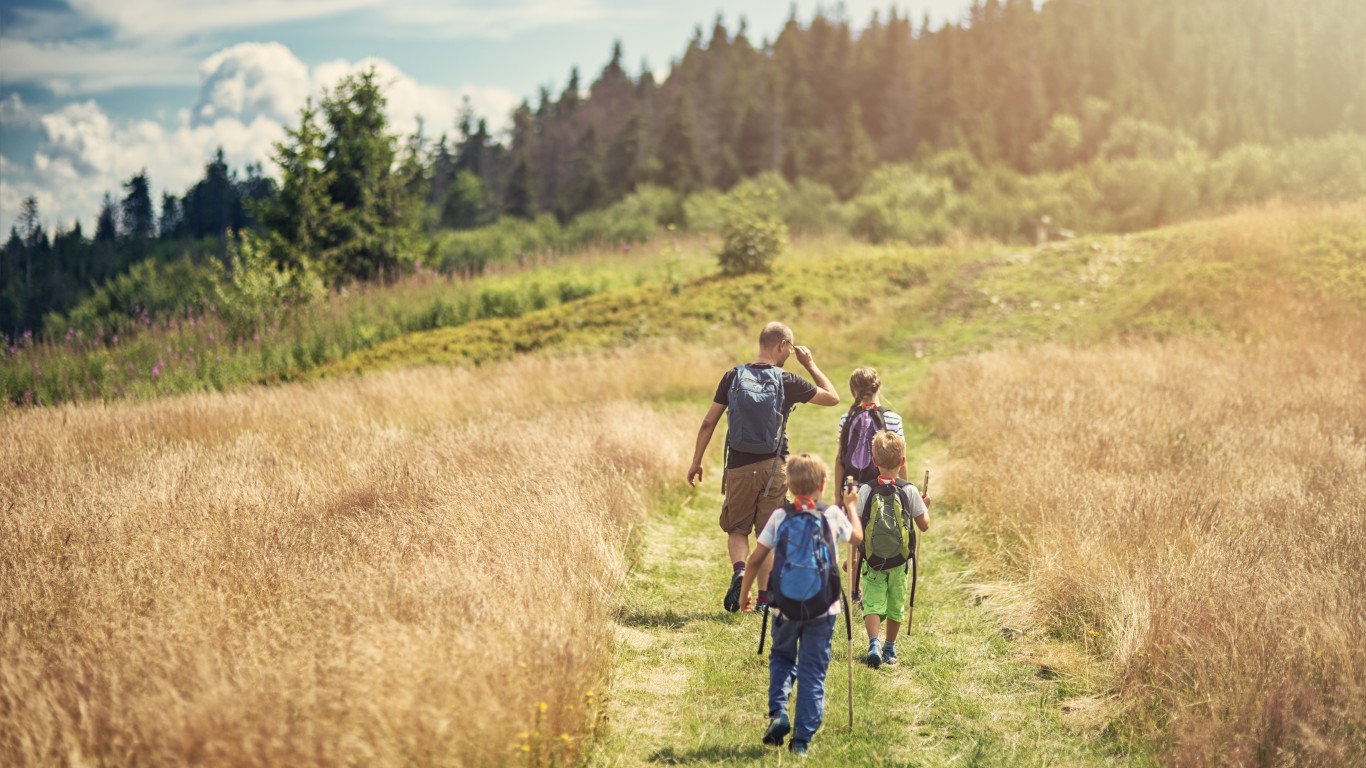
4. Not knowing basic ways to protect your skin from ticks
Summer is a time to go hiking, and hiking requires special preparations. “Get repellent clothing, tuck the pants into the socks — disregard that it might look weird — and tuck the shirt in, so bugs have no way of getting to your skin,” Dr. Simmons said. Forget about wearing flip flops, and wear a long sleeve shirt, preferably a bright color so you can see the ticks, she added. “Throw the clothes in the dryer when you get back because heat is what kills them.”
[in-text-ad-2]
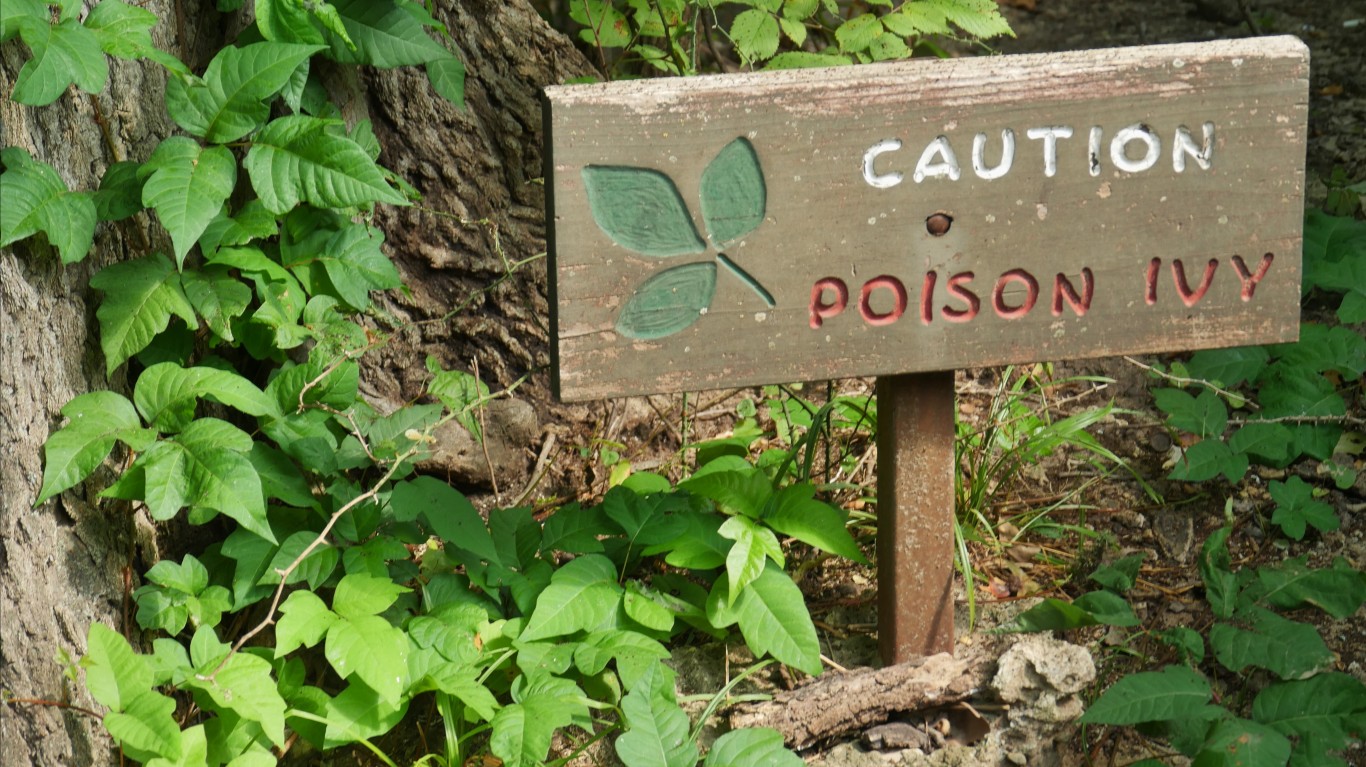
5. Forgetting about poison ivy
“We also worry about poison ivy in the summer,” Simmon said. Most of the time it only causes a blistering rash and itchiness, but some people may have a serious reaction, a sign of which is swelling. To eliminate the risk of poison ivy, you have to wash and dry the clothes when you get back home,” Simmons added.
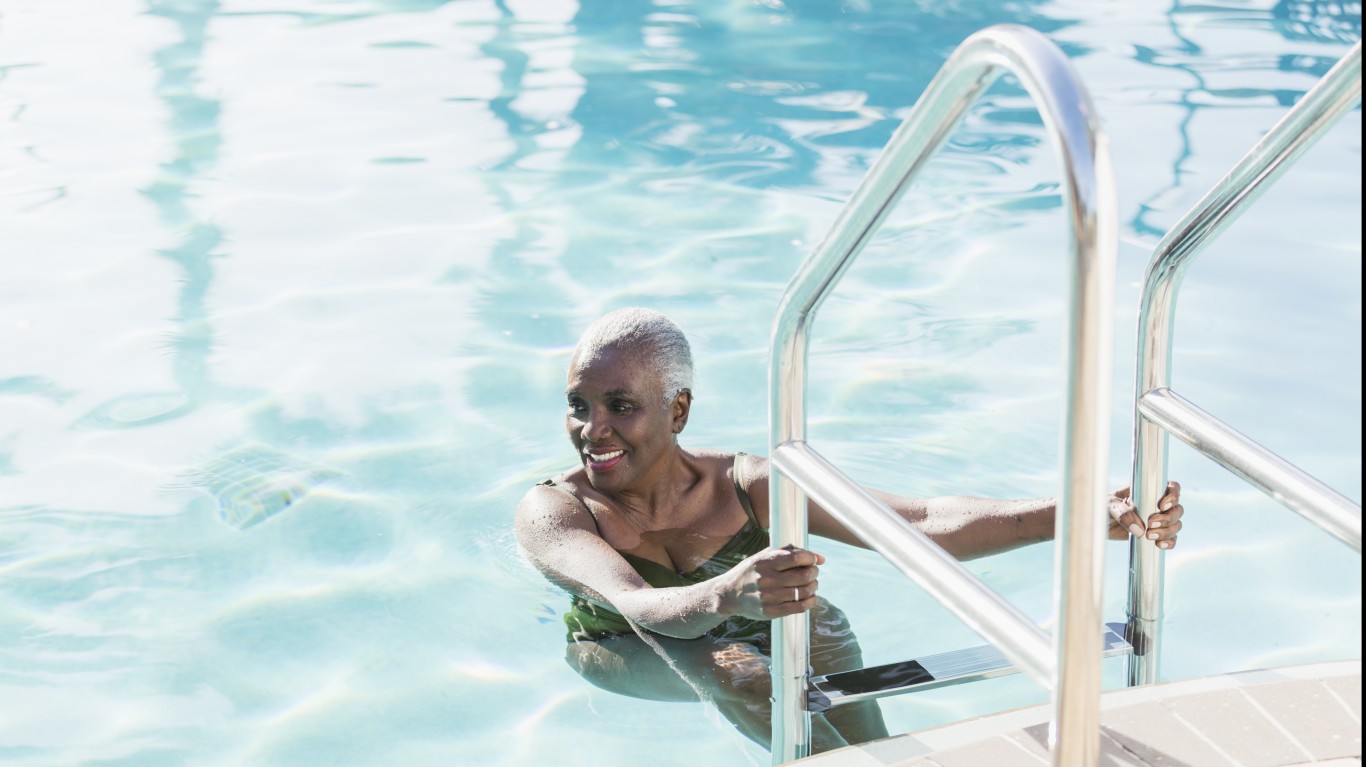
6. Keeping your ears wet after swimming
Swimming is a very pleasant activity, especially on a hot summer day. But it can end in a not so pleasant infection of the outer ear canal. The so-called swimmer’s ear, or otitis externa, happens when water gets trapped in the ear canal by wax, Dr. Simmons explained. “We get a lot of patients with swimmer’s ear in the summer,” she said. There are oil-based, over-the-counter drops with vinegar and alcohol that can be helpful in drying the ears. “Surfers use them a lot,” she added.
[in-text-ad]
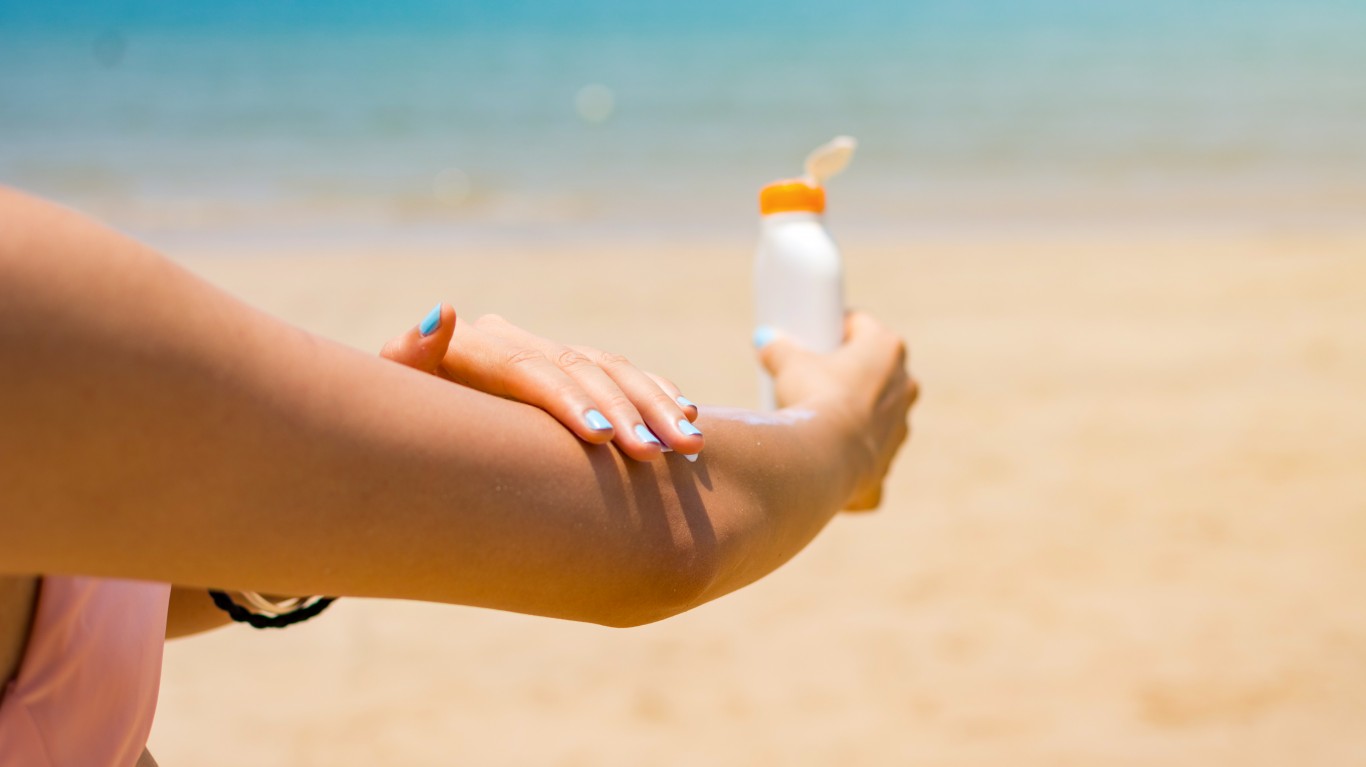
7. Forgetting to reapply sunscreen
Though most people know that one of the best ways to protect themselves from sun damage is to apply sunscreen, many still forget to apply it to their feet, ears, top of the head, and back of the legs, Dr. Simmons noted. But applying once is not enough. It’s crucial to remember to reapply every two hours, as well as right after you get out of the water, and after sweating, according to the Skin Cancer Foundation.
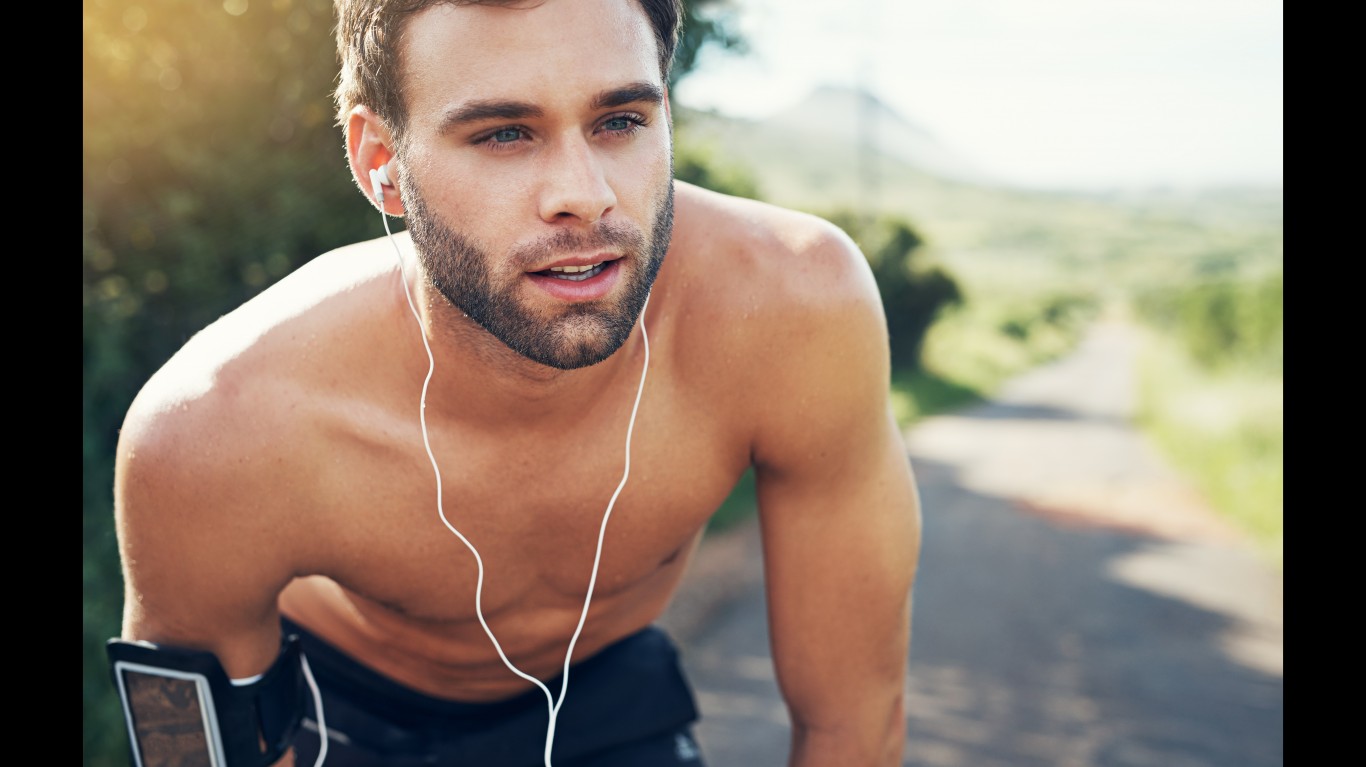
8. Taking your shirt off
Many people find it a bit cooler to run, bike, or just hang out outside with their shirt off. But it’s not worth the risk of sunburn, according to Dr. Simmons. “I always tell my patients to get a very thin long-sleeve white shirt, preferably with UV protection.” They don’t make you feel hot; are loose enough so air still flows over the skin; they cover more skin area; and the lighter colors repels the sun, she explained.
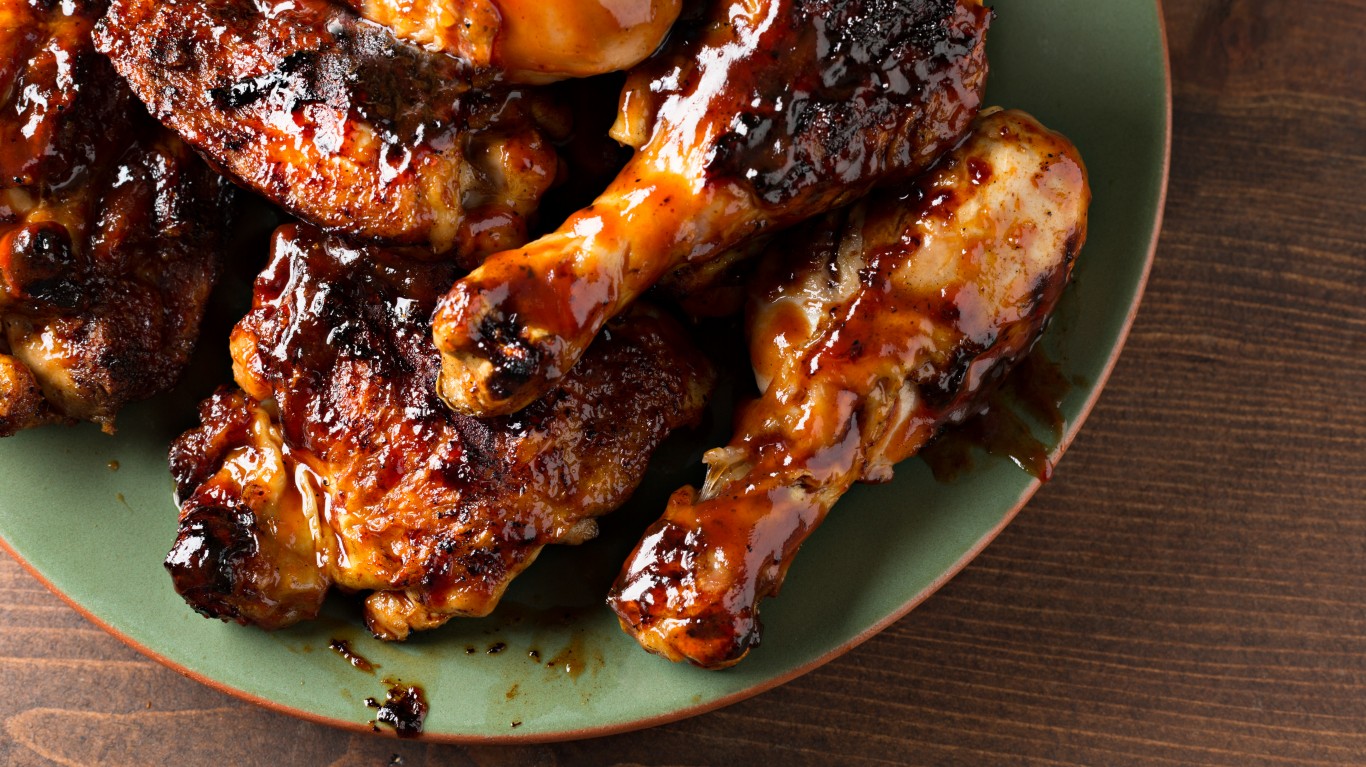
9. Eating a lot of charred meat
Summer and barbecue is a wonderful combination — but it can come with health risks. Certain chemicals that can cause DNA changes and may increase the risk of cancer are formed when meat, fish, or poultry are cooked using very high temperature, according to the National Cancer Institute. The formation of these chemicals — Heterocyclic amines (HCAs) and polycyclic aromatic hydrocarbons (PAHs) — depends on several factors, including how well done you cook the meat. Well-done grilled or barbecued meat have higher HCAs concentrations. There are no guidelines on consumption of foods containing HCAs and PAHs.
[in-text-ad-2]
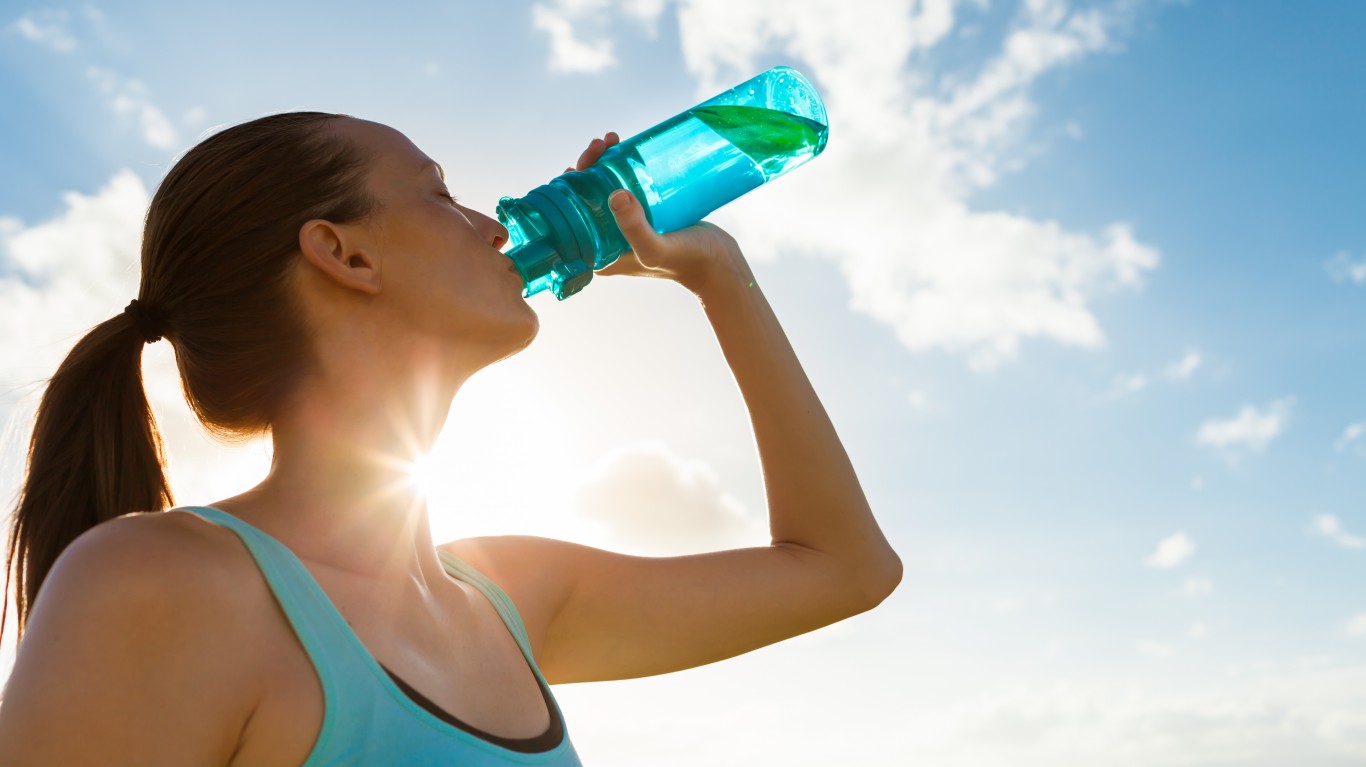
10. Drinking water only when you’re thirsty
It sounds easy enough — drink a lot of water. But many people don’t and get in trouble for it. “If you only rely on feeling thirsty, you’re going to be dehydrated,” Dr. Simmons said. “We see a lot of dehydrated people,” she added. Dehydration is more dangerous than most people may realize. It may cause various problems, from mild conditions such as headaches to serious complications such as swelling of the brain.
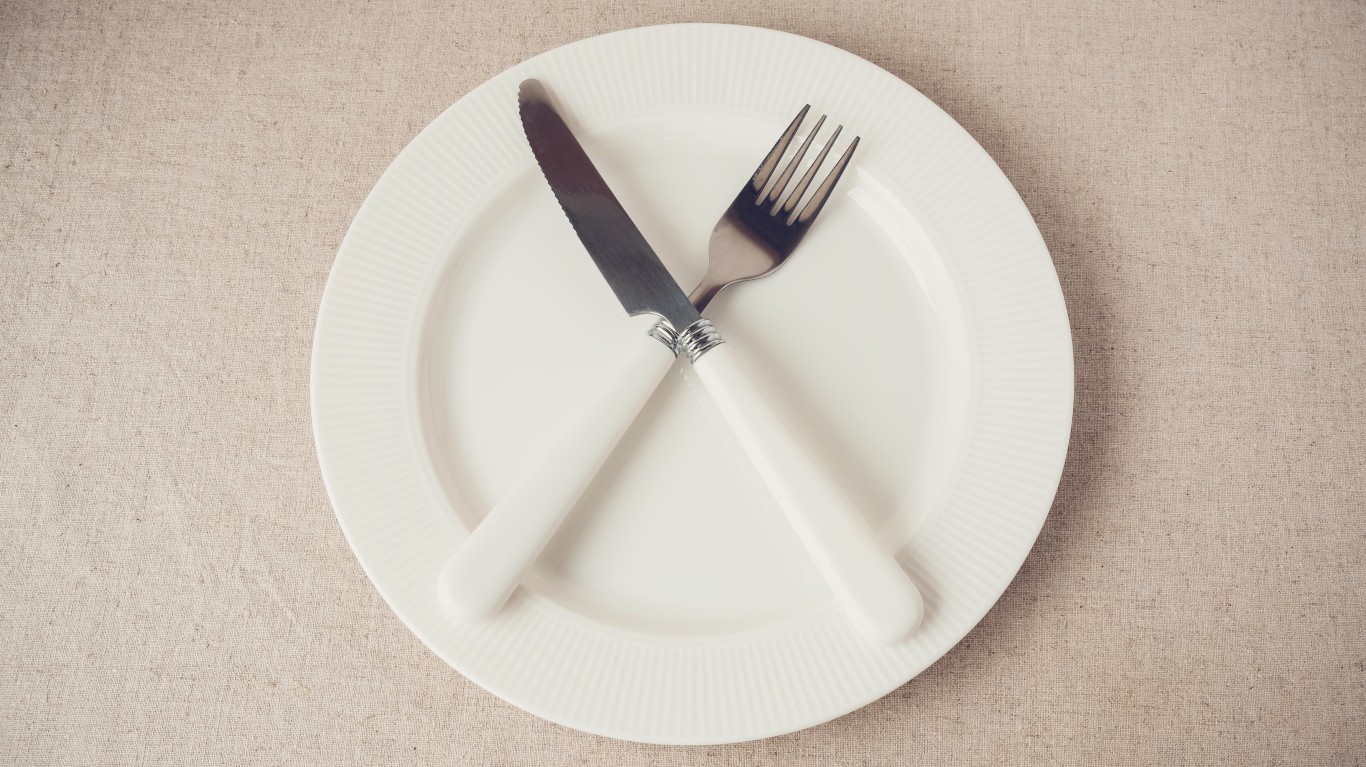
11. Going long periods without eating
Many people want to lose weight for the summer, and eating less is a good way of achieving this goal. But some take it to the extreme and don’t eat for a long period of time. This is never a good idea because the body needs vitamins, minerals, and other nutrients all the time, Dr. Simmons explained. Fasting in the summer is even less recommended because blood sugar levels and blood pressure drop quicker than usual, she noted.
[in-text-ad]

12. Exercising when it’s hot outside
Many people think that sweating means burning fat, and so they go outside in the hot weather to run. “But this is actually the worst thing you can do,” Dr. Simmons said. Sweating is the body’s natural process to cool itself down — water evaporates to lower the body’s temperature — but that can lead to dehydration, she explained. “And it’s harder to stay hydrated when it’s hot.” If you want to lose weight, exercise outside in the morning or late at night — never mid-day, Simmons suggested. “And cut your usual running time in half.” Otherwise, you risk developing heat stroke, she noted.

13. Ignore fireworks safety tips
Fireworks are a lot of fun, and to keep it fun it’s better to watch from a distance. Launching them can be tricky and very dangerous. In the United States, fireworks were involved in approximately 11,100 injuries that were treated in hospital emergency departments in 2016. About 70% of them occurred in the summer, according to the Consumer Report Safety Commission. Some safety tips include wearing protective glasses and earplugs, not wearing loose clothes that can catch fire easily, and keeping and storing the fireworks away from direct sunlight.

14. Indulging in alcohol
Summer time is party time — and that often involves drinking alcohol, especially when we’re at the beach or picnicking. But alcohol and heat can be a dangerous combination. As a diuretic, alcohol promotes dehydration and hinders the body’s ability to regulate its temperature, making a person feel warmer. “For every alcoholic beverage, a person should drink two cups of water,” Dr. Simmon said. Older people and those with certain health conditions should drink less alcohol, or none at all, and drink even more water in between, she noted.
[in-text-ad-2]

15. Eating foods that have been out for too long
Food poisoning incidents peak in the summer, according to the Food Safety and Inspection Service. Many people prefer to eat outside, enjoying the warm weather. There is nothing wrong with that as long as you store the food properly. Bacteria thrive in warmer weather, so put the food back in the fridge as soon as you’re done. This is true especially for milk, meat, fish, and anything with mayonnaise. These foods go bad much quicker when left outside in the heat.
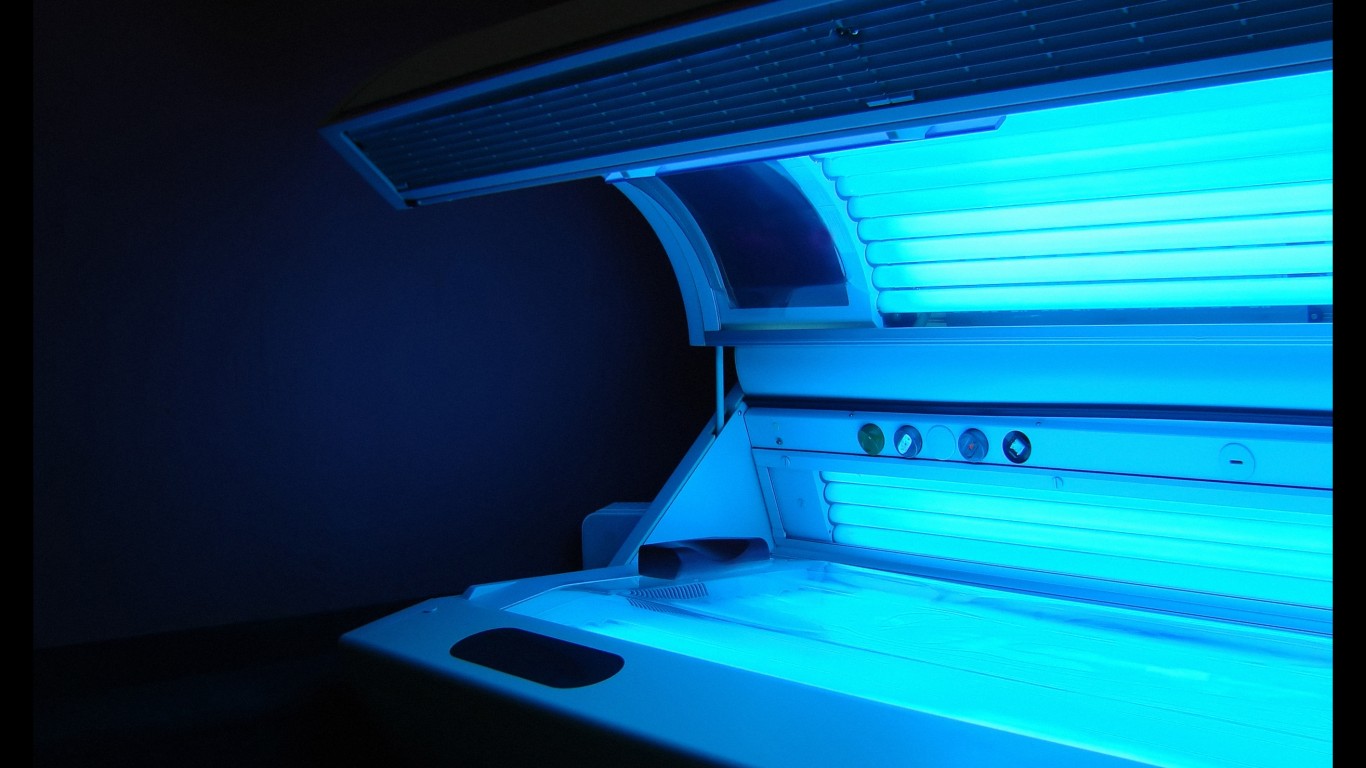
16. Tanning
Some people want to get some base tan before the summer starts, so they go to a tanning salon. But what they’re actually doing is increasing their risk of skin cancer. According to the Skin Cancer Foundation, those who use a tanning bed before age 35 increase their risk of melanoma by 75%.
[in-text-ad]
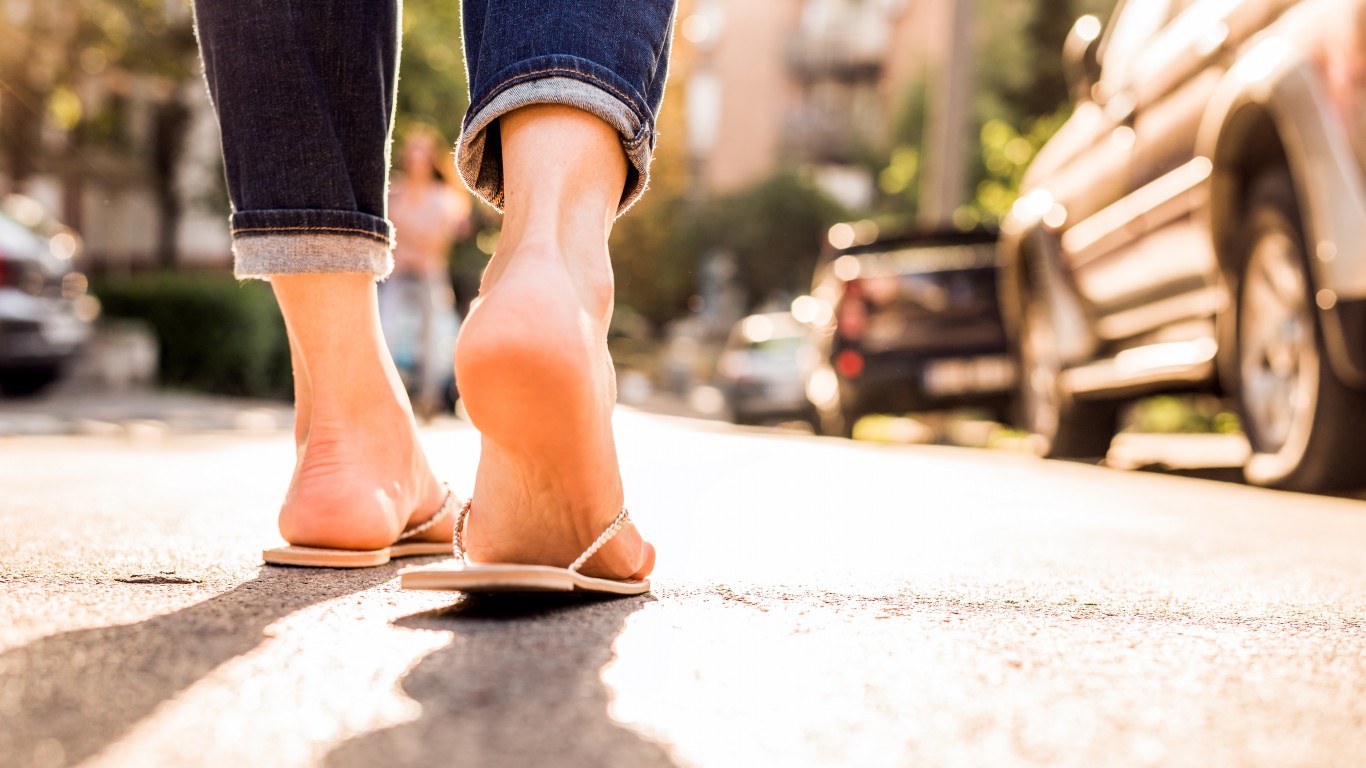
17. Wearing flip-flops all the time
Few women would choose high heels over flip flop sandals when they go for long walks. And no matter your personal opinion about the matter, many men wear flip flops today too. But some doctors say flip flops are not a good option as footwear. They offer no arch support, which may result in foot, knee, and back pain. This kind of flat sandals has also been known to cause or aggravate plantar fasciitis and tendinitis, two inflammatory and painful foot conditions.
Credit card companies are handing out rewards and benefits to win the best customers. A good cash back card can be worth thousands of dollars a year in free money, not to mention other perks like travel, insurance, and access to fancy lounges. See our top picks for the best credit cards today. You won’t want to miss some of these offers.
Flywheel Publishing has partnered with CardRatings for our coverage of credit card products. Flywheel Publishing and CardRatings may receive a commission from card issuers.
Thank you for reading! Have some feedback for us?
Contact the 24/7 Wall St. editorial team.